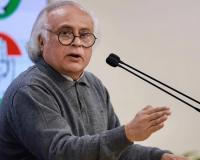Rights groups object to Himachal forest official’s letter on FRA

Several tribal and forest rights organisations in Himachal Pradesh have written to the ministry of tribal affairs, objecting to a letter issued by the state's principal chief conservator of forests which, they claim, misinterprets the Forest Rights Act (FRA) and could harm the recognition of rightful forest dwellers.
The Forest Rights Act, 2006, recognises the rights of tribal and forest-dependent communities over the land they have lived on and protected for generations. However, its implementation has been marked by violations, with a large number of claims wrongly rejected, they say.
The groups — which include Himdhara Collective, Himalaya Niti Abhiyan, Van Adhikar Manch and others — said the forest department's letter, dated 11 April and addressed to all deputy commissioners and forest officers in the state, goes beyond its authority.
They demanded immediate withdrawal of the forest department's letter and called for a trust-building process.
Calling the letter "an unnecessary and unwarranted intervention", the organisations wrote to ministry on 14 April, saying, "As per the Act, only the ministry of tribal affairs (MoTA) is authorised to issue clarifications or guidelines regarding its implementation. The letter issued by the forest department has bypassed the designated nodal agencies and their established clarifications."
The forest department's letter, reviewed by PTI, stressed the need to prevent ecological degradation and in a fragile Himalayan state like Himachal Pradesh.
"While the current generation may rejoice in securing 'rights' over forest lands, we are staring at a very real possibility that future generations will inherit a denuded landscape devoid of the forest systems that nurtured us for centuries," the letter read.
It warned against the broad application of the 'Other Traditional Forest Dweller' (OTFD) category, claiming that it risks being misused in Himachal's context.
"In Himachal Pradesh... almost every person in a rural area can potentially claim to be an Other Traditional Forest Dweller (OTFD) under the FRA but that is total misinterpretation," the PCCF wrote.
"Any overreaching and misinterpretation of the definition can lead to vast destruction and conversion of Himachal Pradesh forests and can violate the ," he said.
Forest rights groups claim this is a misreading of the law.
"The contents of the letter make it quite evident that the Forest Department is attempting to impose its own interpretation of the term Other Traditional Forest Dwellers, effectively bypassing the definition under Section 2(o) provided by Parliament under FRA," they wrote in their letter to the ministry.
They also took issue with the PCCF's direction to reject claims based on "post-encroachment commercial activities", such as apple orchards.
The forest department wrote, "Apple orchards now standing on encroached forest lands cannot be deemed to reflect forest-based livelihood... To label such activity as a continuation of 'bona fide forest-based livelihood' is a dangerous misreading of the law."
But activists argued that this ignores the FRA provisions that allow for livelihood-based self-cultivation.
"Section 3(1)(a) of FRA recognises the right to forest land 'for self-cultivation for livelihood' without any condition on what should or should not be cultivated and includes cultivation for commercial purposes," they wrote.
"Apple, being a tree crop, falls squarely within this definition," they said.
They also objected to the PCCF's insistence on video-recording Gram Sabha meetings and using satellite imagery for claim verification.
The PCCF's letter said "All Gram Sabha meetings must be video-recorded and photographed" and that "open-source imagery and maps be used alongside revenue records to prevent false or exaggerated claims".
The groups called this a legal overreach saying, "FRA does not require meetings of any of its statutory bodies... to be video-recorded and photographed."
They also accused the forest department of misrepresenting Supreme Court directions. The PCCF's letter stated that "any violation or overreaching of powers may invite contempt of Hon'ble Supreme Court as forestland is involved", referring to W.P. (Civil) 109 of 2008.
But the groups said that the court did not issue any such order.
Instead, they wrote, "The Supreme Court in fact stayed its own earlier order of 13 February 2019 on eviction of rejected claimants when the central government and the state governments conceded that the rejection of claims has not been as per the provisions in FRA."
The rights groups alleged that the forest department's past actions had already hindered FRA implementation in the state.
"This is not the first time that the forest department's intervention has derailed the implementation of FRA in the state," they wrote, referring to the 2014 directive that led to 'nil claim' certificates.
C.R. Bijoy, an expert on forest governance, said the forest department is already a statutory part of FRA implementation at every level and there was no need for such letter.
"The forest department is involved at all levels of forest right recognition under FRA — at the village level verification by the Forest Rights Committee, the Sub-Divisional Level Committee and the District-Level Committee. The state forest secretary and the PCCF himself are part of the state apex body, the State Level Monitoring Committee," he said.
"When this is so, issuing such a letter grossly misrepresenting the law and Supreme Court orders indicting all these statutory bodies under FRA including the forest bureaucracy is amazing," Bijoy alleged.
He said the timing of the letter was questionable, with the pending Supreme Court case on FRA.
"Coming at a time when the anti-FRA case WP(c) 109 of 2008 is anticipated to come up in the Supreme Court any time now, the Himachal PCCF's letter seems to be part of a campaign by a section of the disgruntled forest bureaucracy to deliberately malign FRA, a flagship law of the country," the expert said.
He also criticised the department's use of outdated encroachment data.
"The PCCF's reference to encroachment when what constitutes encroachment itself has undergone sea change with FRA... It is altogether another absurdity that the environment ministry and state governments continue to produce legally and factually untenable figures on 'encroachment' to mislead the judiciary, the recent being the National Green Tribunal," he said.











.jpeg)
